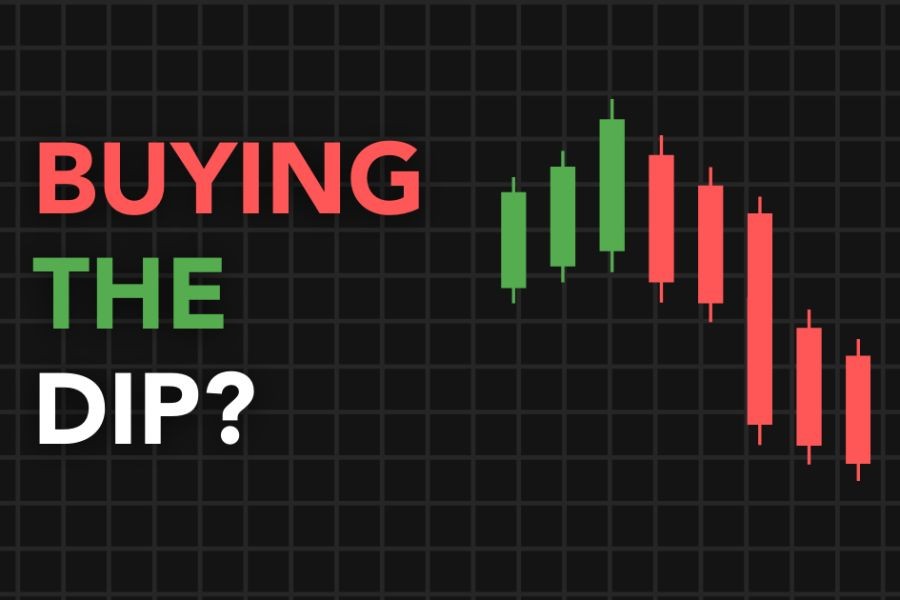In the world of investing, the strategy of "buying the dip" is often touted as a savvy move. This approach involves purchasing stocks during a market downturn, banking on the price recovering and netting a profit. However, in the specific context of New Zealand's evolving economic landscape, this strategy isn't always foolproof. Understanding why can spare investors from potential pitfalls and optimize their investment outcomes.
New Zealand's Unique Economic Landscape
New Zealand's economy, characterized by its strong agricultural base and burgeoning technology sector, presents unique challenges and opportunities for investors. According to Stats NZ, the technology industry alone grew by 12% in 2022, becoming a significant contributor to the country's GDP. However, this growth doesn't occur in isolation; market volatility, influenced by global economic shifts and local policy changes, is a constant.
For instance, the Reserve Bank of New Zealand's monetary policies have a direct impact on market stability. Recent interest rate fluctuations aimed at curbing inflation have led to unpredictable market behavior, making the timing of "buying the dip" more complex.
Case Study: The 2020 Market Dip
During the COVID-19 pandemic, many investors saw the market dip as a prime opportunity. However, a Wellington-based tech startup, invested heavily during the downturn, only to face prolonged recovery periods. Despite an initial 15% increase in stock value in the first six months, unforeseen economic disruptions led to a 20% drop later, highlighting the risks associated with this strategy.
This case illustrates the importance of not just timing but also understanding the underlying market conditions and external factors that could influence recovery.
Pros and Cons of Buying the Dip
Pros:
- Potential for High Returns: When executed correctly, buying the dip can result in substantial profits.
- Cost Averaging: Purchasing stocks at a lower price can reduce the average cost of your investment portfolio.
- Capitalizing on Fear: Opportunistic buying during market fear can lead to gains when the market stabilizes.
Cons:
- Market Timing Risks: Accurately predicting the bottom is challenging, leading to potential losses.
- Economic Volatility: External factors, such as global economic conditions and local policy changes, can prolong recovery.
- Emotional Decision-Making: Fear of missing out can lead to hasty, poorly-calculated investments.
Challenging the Common Myths
Myth: "Buying the dip always results in profit."
Reality: Market recovery is not guaranteed, as seen in the 2020 pandemic dip's prolonged impact on certain sectors.
Myth: "All stocks will recover post-dip."
Reality: Some industries, particularly those heavily impacted by policy changes, may never return to pre-dip levels.
Myth: "It's a strategy only for the experienced."
Reality: Novice investors can also benefit if they approach with caution and informed strategies.
Future Trends and Predictions
Looking ahead, New Zealand's economic landscape will continue to evolve. As the country embraces technological advancements and cleaner energies, investment opportunities will shift. According to a 2024 report by MBIE, sectors like renewable energy and technology are expected to see significant growth, suggesting strategic areas for future investments.
Moreover, as global markets become more interconnected, New Zealand investors must remain vigilant about international economic trends and local policy changes that could influence market stability and opportunities.
Conclusion
While "buying the dip" can be appealing, it's crucial for New Zealand investors to approach this strategy with caution. Understanding the country's unique economic factors and global influences can guide more informed investment decisions. As the landscape changes, staying informed and adaptable will be key to successful investing.
What’s your take? Have you had success with buying the dip, or have you faced challenges? Share your insights below!
People Also Ask (FAQ)
- Why is buying the dip risky in New Zealand? Market volatility and economic conditions, influenced by local policies and global trends, make timing difficult.
- Are there industries in NZ that benefit from buying the dip? Technology and renewable energy sectors show potential for growth post-dip, according to MBIE forecasts.
Related Search Queries
- Investing strategies in New Zealand
- New Zealand stock market predictions
- Economic trends in New Zealand 2024
- Technology sector growth NZ
- New Zealand renewable energy investment
































domoticasystems
9 months ago